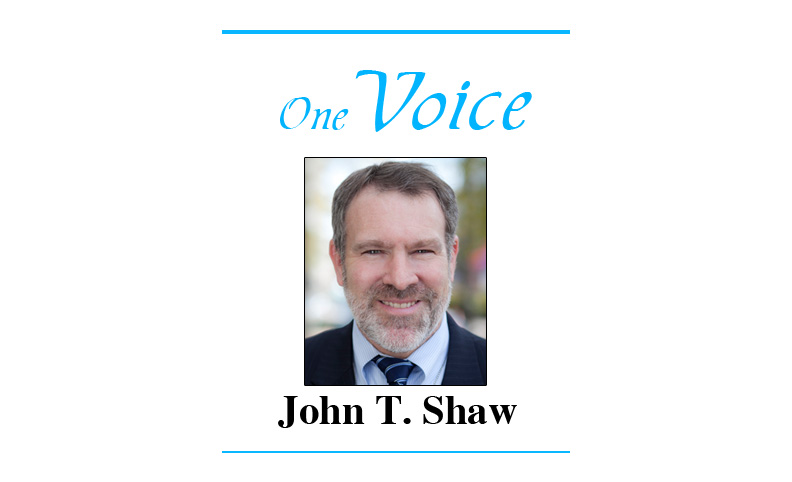
I recently went looking for a nugget and found a gold mine.
Let me explain. I visited the website of the Abraham Lincoln Presidential Library and Museum a few weeks ago to track down information on a former Illinois lawmaker from its oral history collection. I emerged several hours later delighted, stimulated, and eager for a return trip.
The Abraham Lincoln Presidential Library and Museum is a remarkable institution, serving as a kind of mecca for those interested in our 16th president. It offers unmatched resources about Lincoln but also has plenty of other materials about Illinois politics and government. Among other things, the Library has a remarkable oral history collection, which it says is “dedicated to preserving the stories and memories of Illinois’s citizens, not just the famous and prominent among us.”
The Library has conducted more than 1,000 interviews for its oral history project, including conversation with veterans, farmers, civil rights activists, athletes and politicians. It has more than 200 interviews about Illinois government and politics. Major topics include the battle for the Equal Rights Amendment, the state’s pension crisis, Barack Obama’s years in Illinois, Ronald Reagan’s youth in Dixon, reflections of legislators and journalists, and the administrations of Dan Walker, Jim Thompson, Jim Edgar and Pat Quinn.
During my foray into the oral history collection, I came across some gems. For example:
• Abner Mikva’s early impressions of Barack Obama:
Mikva served in both the Illinois and U.S. House of Representatives and as a federal judge and White House legal counsel. Mikva recalls trying as a federal judge to hire Barack Obama as a law clerk. Obama had other plans, but the two men later became colleagues and friends at the University of Chicago Law School. Mikva says Obama was a “fabulous teacher” and “an incredibly effective state senator.” Mikva says that Obama ran a “miserable” campaign for the U.S. House in 2000 and pondered leaving politics. However, Obama persisted and launched a longshot bid to win the U.S. Senate seat in 2004. Obama ran a strong campaign and had good luck when two formidable contenders dropped out of the race because of personal scandals. Then Barack Obama gave an amazing speech in Boston at the Democratic National Convention — and the rest is history.
• Dawn Clark Netsch’s ideal for political campaigns:
Netsch was a law professor, State senator, comptroller and the Democratic nominee for governor in 1994. In her interview, Netsch describes political campaigns as an “opportunity to educate” the public on important issues. She believes candidates should explain complex issues, identify a range of solutions and endorse a policy. This view of campaigns has largely disappeared, especially with the arrival of 30-second attack ads. But Netsch argues that this approach respects voters and strengthens our democracy.
Can we make it this far. If not will trim.
Christine Radogno’s attempt to end a protracted budget stalemate
Radogno was a Republican state senator from 1997 to 2017 and the Senate GOP leader from 2009 to 2017. In her interview, she describes the frustration of working with a governor of her own party, Bruce Rauner, who was a “disruptor” rather than a deal maker. “He made himself irrelevant by not compromising,” she says. Radogno vividly describes her effort to assemble a Grand Bargain with Senate Democratic Leader John Cullerton to end the protracted budget stalemate of 2015-2017. Radogno’s effort failed, and she resigned from the Senate. But she said the serious bipartisan negotiations were “such a pleasant experience. This is how it should be.”
Mike Lawrence drafts three speeches for Governor Edgar
Lawrence was a veteran journalist, press secretary and the second director of the Paul Simon Public Policy Institute. Lawrence left the Edgar administration in the summer of 1997 to come to the Institute but continued to informally advise the governor. That summer, Edgar agonized over three options for his future: run for a third term as governor in 1998, seek a U.S. Senate seat or retire from politics. To help Edgar decide, Lawrence wrote a draft speech for each of the alternatives. As Edgar read the speech announcing his retirement, he grew emotional. He later told Lawrence that he knew “intellectually” this was the right decision, but that it was very hard to leave a job he loved.
As I listened to these interviews, I was struck by the clear voices, compelling personalities, and wonderful stories that emerged. This oral history collection really brings Illinois history to life. Audio from every interview is available online at OralHistory.Illinois.gov.
John Shaw is the director of the Paul Simon Public Policy Institute at Southern Illinois University Carbondale. Shaw’s monthly column explores how Illinois can work toward better politics and smarter government.

